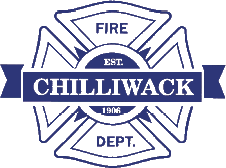Fraser Valley – The B.C. government is launching a one-day training model for ESS responders in response to feedback from communities and input from the Premier’s Expert Task Force on Emergencies starting May 4. The new training condenses the current week-long training model, allowing people to rapidly become trained as an ESS responder during emergencies, which will make the training more accessible for many people who want to be volunteers. The course will prepare new ESS responders to provide trauma-informed and culturally safe support both in-person or by phone, which will help provide more ESS responders across B.C. in places that might not have a large volunteer capacity.
“Evacuation orders can have a big impact, and as natural disasters like flooding become more frequent and severe, we need to make sure that the right services are in place for people,” said Bob D’Eith, MLA for Maple Ridge-Mission. “We are taking steps to train more emergency response volunteers faster, so that people impacted by these events get the help they need right away.”
The government is also supporting almost 100 local ESS projects with more than $3.27 million through the Community Emergency Preparedness Fund (CEPF). Funding will help communities expand their capacity to provide ESS, as well as support the modernization of their ESS program to include more digital and remote support options.
The following First Nations and local governments are receiving this strain of ESS funding:
- City of Abbotsford- ESS Professional Development Modernization
- $14,769
- Fraser Valley Regional District- ESS Grant 2024 endorsement request
- $30,000
- Leq’a:mel First Nation- Emergency-support services equipment/staff
- $24,328.11
- City of Mission- ESS team training and grant recognition and ESS trailer supply restock
- $11,382.55
- Fraser Valley Regional District- ESS 2024 Endorsement Request
- $30,000
- Harrison Hot Springs- ESS Harrison
- $9,471.59
- District of Kent- 2024 ESS Upgrades
- $25,655.50
- Seabird Island Band- ESS Equipment
- $28,963.34
- Soowahlie First Nation- Soowahlie ESS Program Capacity Development
- $30,000
- Sqwá First Nation- Sqwá Emergency Support Advisor
- $30,000
The CEPF helps communities to better prepare for and mitigate the impacts of climate-related emergencies by funding local projects and initiatives in several categories. These include disaster-risk reduction and climate adaptation, public notification and evacuation-route planning, and emergency operations centre equipment and training. The Province has invested $369 million into the CEPF since its establishment in 2017. Approximately $176 million has been provided to First Nations and local governments through the CEPF for more than 1,800 projects. This includes over $13.5 million to support local ESS teams.









